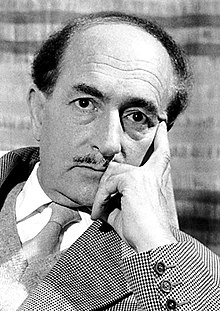Salvatore Quasimodo
| Salvatore Quasimodo | |
|---|---|
 |
|
| Born |
20 August 1901 Modica, Sicily, Italy |
| Died | 14 June 1968 (aged 66) Naples, Italy |
| Resting place | Cimitero Monumentale, Milan, Italy |
| Occupation | Author |
| Literary movement | Hermeticism (poetry) |
| Notable awards |
Nobel Prize in Literature 1959 |
Salvatore Quasimodo (Italian: [salvaˈtoːre kwaˈziːmodo]; August 20, 1901 – June 14, 1968) was an Italian novelist and poet. In 1959 he won the Nobel Prize for Literature "for his lyrical poetry, which with classical fire expresses the tragic experience of life in our own times". Along with Giuseppe Ungaretti and Eugenio Montale, he is one of the foremost Italian poets of the 20th century.
Quasimodo was born in Modica, Sicily to Gaetano Quasimodo and Clotilde Ragusa. In 1908 his family moved to Messina, as his father had been sent there to help the population struck by a devastating earthquake. The impressions of the effects of natural forces would have a great impact on the young Quasimodo. In 1919 he graduated from the local Technical College. In Messina he also made friends with Giorgio La Pira, future mayor of Florence.
In 1917 Quasimodo founded the short-lived Nuovo giornale letterario ("New Literary Journal"), in which he published his first poems. In 1919 he moved to Rome to finish his engineering studies, but poor economic conditions forced him to find a work as a technical draughtsman. In the meantime he collaborated with several reviews and studied Greek and Latin.
In 1929, invited by Elio Vittorini, who had married Quasimodo's sister, he moved to Florence. Here he met poets such as Alessandro Bonsanti and Eugenio Montale. In 1930 he took a job with Italy's Civil Engineering Corps in Reggio Calabria. Here he met the Misefari brothers, who encouraged him to continue writing. Developing his nearness to the hermetic movement, Quasimodo published his first collection, Acque e terre ("Waters and Earths") in that year.
...
Wikipedia
